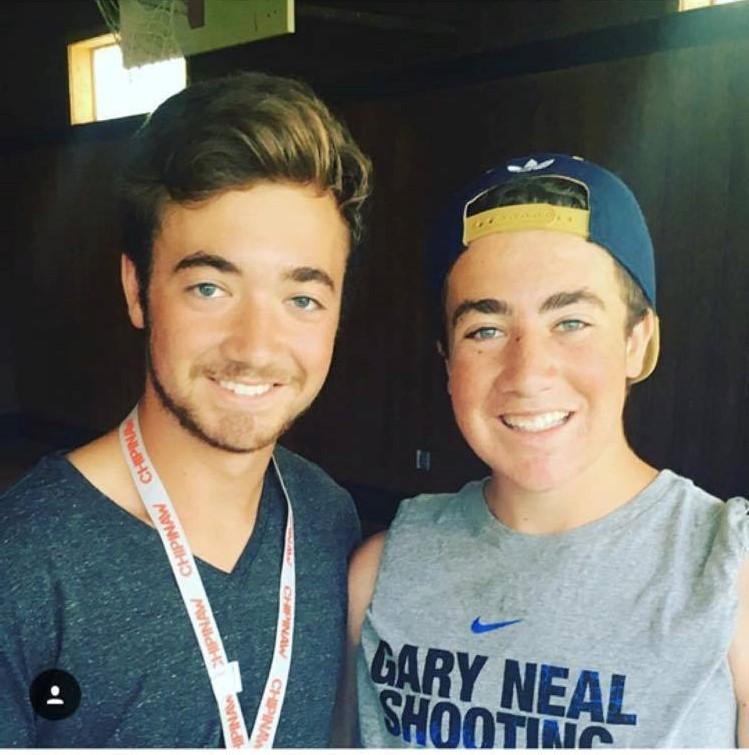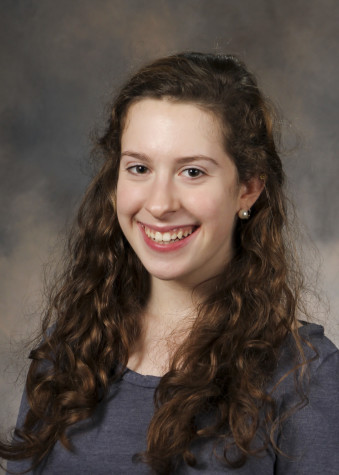Life in a sibling’s shadow
photo courtesy of Elisa Bauman
Sophomore Ryan Bauman (right) with older brother senior Jared Bauman (left).
January 19, 2017
Between fights over clothes and amateur wrestling matches, growing up with siblings is not always easy. For some siblings, however, this tension extends beyond T-shirts and right hooks.
There are 250 students at the Upper School who have at least one other sibling at the school. This proximity can lead to comparisons between siblings from faculty and other students, but primarily comes from the siblings themselves.
When freshman Ryan Bauman arrived at the Upper School in seventh grade, he struggled because he felt that he lived in the shadow of his older brother, senior Jared Bauman. While Ryan was just getting used to his new classes, Jared, who was accustomed to life at the Upper School, was already involved in many clubs and extracurriculars.
“When I first came to this school, I felt as if my brother was this bigshot — everyone knew him and loved him,” Ryan said. “All the teachers liked him, so I thought it was going to be hard to make a name for myself.”
It was ultimately his teachers, Ryan said, who convinced him otherwise. Ryan believes that going to a smaller school allows him to create stronger relationships with teachers because they “are very focused on who you are and not what your name is.”
For sophomore Maya Cohen-Shields, though, sometimes it is not enough to remind herself that her teachers see her as a separate person than her older sister, alumna Naomi Cohen-Shields (‘16). Having teachers that her sister previously had is at times a source of discomfort for Maya.
“I know that the teachers know I’m a different person, but [the pressure] is just kind of there,” Maya said. Whether it be a teacher or a subject, Maya said that sometimes it is difficult to not criticize herself when she and her sister have something in common. Because both sisters are academically driven, Maya often finds herself stressed out about her performance in school and feels the need to “live up” to her sister.
High school guidance counselor Rachel Soifer said that it is common for students to compare themselves to their siblings. As students begin to explore their interests they often “find a shadow” of an older sibling. She thinks that one factor of this is that many students are in the process of forming their identities.
“When you’re growing yourself and becoming who you are … you really have to reflect on your own experience and the things that are meaningful to you and the things that you are energized by,” Soifer said. “If your motivation to do things stems out of comparing yourself to others, then you’ll eventually wear yourself out.”
English teacher Davida Yitzhaky is the third of four children, and although she has experienced comparisons to her siblings, she does not let these influence how she lives her life. After having gone to the same high school as her siblings, she now teaches alongside two of them: math teacher Reuben Silberman and exercise science teacher Becky Silberman.
Yitzhaky and Reuben were compared as students in high school. For Yitzhaky, these comparisons resurfaced when she began working at JDS. In her first two years teaching at JDS, she was constantly referred to as “Mr. Silberman’s sister,” and she again felt the need to distinguish herself from him. Yitzhaky draws from the experiences she had in high school and the beginning of her teaching career to help students who find themselves in a similar situation.
“I understand that everyone really is unique and has certain skills, and my challenge as a teacher is to try to help students maximize their own personal potential rather than reach the potential of an older brother or an older sister,” Yitzhaky said.
Yitzhaky said that because she and her siblings understand that each has their respective strengths and weaknesses, they frequently look to one another as role models and are very close as a result.
Similarly, Soifer believes that celebrating siblings’ differences can help them overcome feelings of inadequacy. To Soifer, no matter the competition that exists between siblings, the bond can always be healed.
“It only takes one person to … change the relationship,” Soifer said. “If [a student thinks,] ‘I don’t like this relationship anymore and am deliberate about stepping out of it,’ then things will evolve.”








